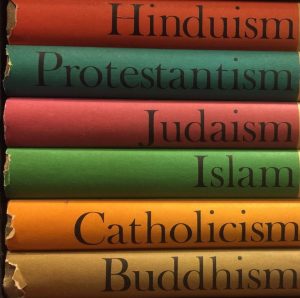Maryland Religious Discrimination Attorney

Since colonial times, Maryland has stood as a shining beacon of religious freedom for the world. Originally founded by Roman Catholics fleeing oppression in Protestant England, Maryland today boasts a diverse population of many faiths and creeds.
Our common commitment to freedom of conscience and belief extends to protecting all individuals from religious discrimination in the workplace. Yet, this doesn’t always happen. When your rights have been violated, it’s time to speak with a Maryland religious discrimination attorney.
Religion often inspires passionate discussion and debate among people. There is nothing wrong with that. When it comes to the workplace, however, employers must never allow their own religious views to prejudice their treatment of employees.
Federal and state laws bar employers from treating any employee differently based on his or her religion. At The Law Firm of J.W. Stafford, L.L.C., we represent individuals who have been unfairly targeted due to their beliefs (or lack thereof). No employer has the right to demand that you ignore your religion as a condition of employment. Our Maryland religious discrimination attorneys can make sure you are treated fairly, legally and with respect.
What Religious Practices and Beliefs are Legally Protected?
Unlike colonial Maryland, where the various denominations of Christianity dominated, today the population of Maryland includes many other organized religions, including Buddhism, Hinduism, and Islam. Religious discrimination laws protect all of these faiths. Indeed, an employee need not even belong to a traditional, organized religion. The law protects any “sincerely held” religious, moral, or ethical belief system, regardless of whether the employee belongs to a larger group that shares those values.
Religious discrimination includes taking an adverse employment action based not only on an employee’s moral views or beliefs, but also practices or membership in a particular group. This can even extend to an employee’s associations with members of a particular faith. Similarly, an employer cannot require membership in a particular religion–or participation in religious exercises–as a condition of employment or receiving any benefits.
An employer must also make “reasonable accommodation” for an employer’s religious beliefs. A common example is providing flexible scheduling so an employee can take time off for religious observances and holidays. An employer must also, upon request, modify its standard dress or grooming code as necessary to accommodate religious practices, such as permitting a Jewish employee to wear a yarmulke or allowing a Sikh to maintain a beard. However, it is not considered religious discrimination if an employer refuses an employee’s request for an accommodation that would create an “undue hardship” for the business.
That said, an employer cannot hide behind seemingly neutral workplace policies to justify religious discrimination. For instance, an employer may not implement a blanket policy requiring all employees to work at least one Sunday a month and use that as an excuse to deny a Christian employee’s request for Sundays off to attend church services. An employer may also be liable for creating a hostile work environment if supervisors or co-workers engage in a pattern of harassment against an employee based on his or her religious beliefs.
Speak With a Maryland Religious Discrimination Attorney
Religion often inspires passionate discussion and debate among people. There is nothing wrong with that. When it comes to the workplace, however, employers must never allow their own religious views to prejudice their treatment of employees. Attorney Jamaal (“Jay”) W. Stafford and his team represent many workers who have faced adverse job discrimination because of their religious beliefs. Contact or call a Maryland religious discrimination attorney at The Law Firm of J.W. Stafford, L.L.C. at 410-514-6099 if you believe you are being discriminated against because of your views.

